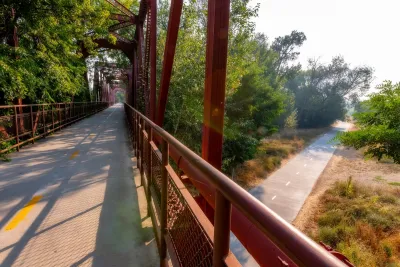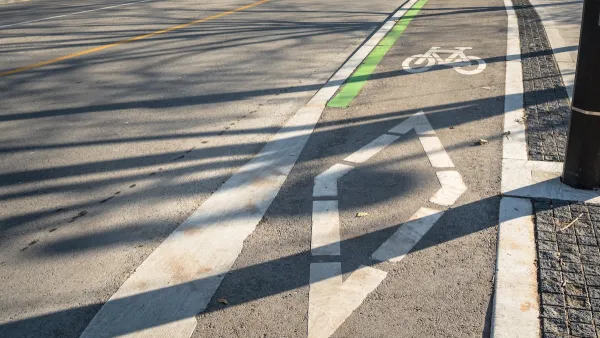Sensors on specially equipped bikes can collect information on trail accessibility and pavement conditions to prioritize maintenance projects.

Bicycles equipped with data collection devices are helping communities understand the conditions of their bike lanes and paths, reports Daniel C. Vock for Route Fifty.
“Local planning organizations have deployed them in Idaho, Iowa, Massachusetts and Minnesota,” Vock adds. “The Des Moines area agency produces heat maps of where distressed pavement is located, which helps local governments identify the problem areas quickly.” In Des Moines, the city wants to map out all of the region’s pathways in two years.
Local governments can use this data to build more resilient trails and understand problem areas. Planners can use the information to prioritize areas for improvement when applying for grants and developing maintenance plans.
The technology isn’t without its challenges: “The devices on board also don’t record debris or the slope of the paths, which would also be helpful for devising maintenance plans. And they don’t capture branches growing over the path or other obstacles that could prevent cyclists from using the trail.”
FULL STORY: Rough ride? Data bikes chart the condition of bike paths in more cities

National Parks Layoffs Will Cause Communities to Lose Billions
Thousands of essential park workers were laid off this week, just before the busy spring break season.

Retro-silient?: America’s First “Eco-burb,” The Woodlands Turns 50
A master-planned community north of Houston offers lessons on green infrastructure and resilient design, but falls short of its founder’s lofty affordability and walkability goals.

Delivering for America Plan Will Downgrade Mail Service in at Least 49.5 Percent of Zip Codes
Republican and Democrat lawmakers criticize the plan for its disproportionate negative impact on rural communities.

Test News Post 1
This is a summary

Test News Headline 46
Test for the image on the front page.

Balancing Bombs and Butterflies: How the National Guard Protects a Rare Species
The National Guard at Fort Indiantown Gap uses GIS technology and land management strategies to balance military training with conservation efforts, ensuring the survival of the rare eastern regal fritillary butterfly.
Urban Design for Planners 1: Software Tools
This six-course series explores essential urban design concepts using open source software and equips planners with the tools they need to participate fully in the urban design process.
Planning for Universal Design
Learn the tools for implementing Universal Design in planning regulations.
EMC Planning Group, Inc.
Planetizen
Planetizen
Mpact (formerly Rail~Volution)
Great Falls Development Authority, Inc.
HUDs Office of Policy Development and Research
NYU Wagner Graduate School of Public Service




























